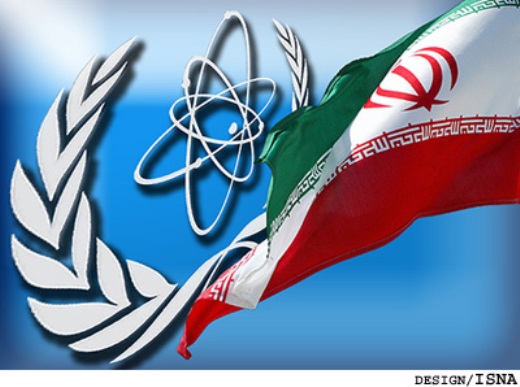Donya-e Eqtesad newspaper reported in its 3,313th issue on October 4 that inspectors with the International Atomic Energy Agency are to visit Iran on Tuesday October 7, and that their visit comes as some representatives on Capitol Hill have raised concern about a possible final nuclear deal between Iran and P5+1. Their expression of concern seems to be designed to overshadow the Iran visit of IAEA inspectors. The following is the translation of the report:
As the recent round of nuclear talks between Iran and P5+1 came to an end in New York September 26, amid conflicting remarks by the two sides on the advancement of the talks, there are indications that Iran and P5+1 have gotten closer to the point where a comprehensive deal is possible.
This comes as more than 80 percent of Republicans in the US House of Representatives signed a letter to Secretary of State John Kerry late Wednesday, raising concern over what they called Iran’s refusal to cooperate with International Atomic Energy Agency inspectors, calling for the adoption by the US of a tougher stance in the talks.
However, these 354congressmen seem to be concerned more about a nuclear agreement between Iran and the six world powers. The bi-partisan letter read in part, “The only reason Tehran is blocking international investigators is that Tehran has something to hide,” according to Agence France-Presse (AFP).
This clearly overlooks the fact that Iran has cooperated [with the agency] well beyond its commitments and that the IAEA investigators have made numerous tours of inspections of Iran’s nuclear sites.
Three-hundred fifty-four out of 432 members of the US House of Representatives have signed the missive, among them John Boehner, the House Speaker. The Republican majority in the House [together with some Democrats] have accused Iran of stonewalling the UN nuclear watchdog’s investigators and covering up [the details of its nuclear program] as they repeated their past claims questioning the peaceful nature of Tehran’s atomic plan.
This is not the first time that Republicans have blocked the path to striking a nuclear deal with Iran, unleashing a [negative] reaction. They had earlier sounded the alarm to [President] Obama over the same issue. The Republicans had gone so far in their confrontation [with the Obama administration] that even the US president had warned he would veto their decision on this.
The stark warning by Congress came after Israeli Prime Minister Benjamin Netanyahu met with the US president at the White House on Wednesday, bringing up, among other things, the question of Iran’s nuclear program. The Zionist regime’s premier enjoys the overwhelming support of the US Congress, especially in the House of Representatives where four-fifths of its members have put their signatures on the October first letter [to Secretary Kerry] saying they are concerned about any possible agreement with Iran which would recognize Iran’s “lack of transparency”.
In the White House talks, Netanyahu expressed his disquiet over Iran’s nuclear talks and told President Obama that “he must make sure that any final nuclear deal with Iran does not leave it at the ‘threshold’ of being able to develop nuclear weapons”.
The US president made it clear to Netanyahu that regional events, including the need to destroy ISIL, “won’t change our calculus on this issue,” according to Reuters.
With a deadline for reaching a final agreement less than two months away, Zionist officials have mounted an anti-Iran lobby to scuttle the nuclear talks. Netanyahu repeated his unfounded and ridiculous remarks in an interview with NPR and said that Iran does not need to enrich uranium, claiming, “The centrifuge you really need is for one thing, not for civilian nuclear energy, but for making a bomb, […]”.
Despite such remarks and deep unease about Iran’s nuclear program by the Zionist regime and opponents [of the nuclear talks] in the US Congress, former IAEA deputy secretary general Olli Heinonen believes that a comprehensive nuclear deal will be concluded between Iran and the six world powers, although certain technical and political problems do exist in the talks.
Following the end of the seventh round of nuclear talks in New York, US officials have increased their meetings with members of P5+1. A meeting Wednesday between the US secretary of state and his Chinese counterpart was held to this end. The US State Department announced that Iran’s nuclear program came up for discussion in John Kerry’s meeting with the Chinese top diplomat Wang Yi.
All told, Western media are talking – in their analyses – about a major breakthrough they say is on the horizon and the likelihood of a comprehensive nuclear deal.
